
Open Banking: Still The Next Big Thing
As open banking expands, consumers and companies stand to enjoy lower fees, greater ability to leverage their financial data: if they can control the risk of stolen or misused data.
The world's poorest countries suffer from civil wars, ethnic and sectarian strife. COVID-19, soaring inflation and the war in Ukraine made their bad situations worse.
The world has enough wealth and resources to ensure that the entire human race enjoys a decent standard of living. Yet people countries like Burundi, South Sudan and the Central African Republic continue to live in desperate poverty. For other likely contenders for the undesirable title of the world’s poorest country—Afghanistan, Syria and Yemen—years of ongoing conflict make it impossible to even attempt an assessment due to the lack of reliable economic figures.
So how do we determine the poorest countries in the world? While GDP per capita is often considered the standard metric, compensating for differences in living costs and rates of inflation by using purchasing power parity (PPP) can better assess an individual’s buying power in any given country.
It is hard to pinpoint a single cause for long-term poverty. Corrupt governments can make a very rich nation into a poor one. And so can a history of exploitative colonization, weak rule of law, war and social unrest, severe climate conditions or hostile, aggressive neighbors. Weaknesses compound: A country in debt will not be able to afford good schools, and a poorly educated workforce will limit capacity.
Underprivileged households worldwide suffered the severest social and economic consequences of the coronavirus pandemic. In the world’s poorest countries with their high level of informal employment, there were no social safety nets or temporary loans to keep businesses open and workers employed. The World Bank forecasts that in low and middle-income countries, the current generation of students could lose up to 10% of their future average annual income.
Before Covid-19, the fraction of the world’s population living in extreme poverty—meaning on less than $1.90 a day—had fallen below 10% from more than 35% in 1990. The pandemic not only halted but reversed that progress: since the onset of the health emergency to the end of 2022, the IMF estimated an additional 198 million people are likely to have entered the ranks of the extremely poor.
Then the war in Ukraine triggered sharply higher prices for food. “The COVID-19 pandemic and the war in Ukraine further aggravated food insecurity by reducing current and anticipated supplies of food and fertilizers, triggering a sharp rise in global and domestic food prices,” a group of economists wrote in the “Global Food Crisis Update” report just released by the IMF. “These effects have been compounded by the persistent impact of conflicts and devastating climate-related events in several fragile and conflict-affected states.” Despite price pressures easing this year, an all-time high of 345 million people across 79 countries are expected to face acute food insecurity in 2023, more than twice the number for 2020, the IMF concludes.
These reversals in food security and poverty reduction gains are especially visible in the top ten poorest countries in the world, all of which are in Africa. On average, the individual share of the gross domestic output is just $1,380 in the world’s poorest countries. By contrast, this figure is about $105,000 in the world’s richest countries.
Three of the countries in our list are in or part of Africa’s Sahel region, where persistent droughts cause food shortages and associated medical and social problems. Five of them are landlocked, putting them at a considerable disadvantage relative to those with access to maritime trade. All lack political stability, have experienced disputed elections or ethnic/religious strife and perform poorly on our world's safest countries ranking.
Below is a ranking of the ten poorest countries, starting from the country ranked tenth poorest and progressing to the country ranked as the top poorest in the world for 2023. For the complete ranking of the world's countries from poorest to richest, click here.
Rank |
Country/Territory |
GDP-PPP ($) |
| 10 | Liberia | 1,788 |
| 9 | Chad | 1,787 |
| 8 | Malawi | 1,682 |
| 7 | Niger | 1,600 |
| 6 | Mozambique | 1,556 |
| 5 | Democratic Republic of the Congo | 1,474 |
| 4 | Somalia | 1,374 |
| 3 | Central Afrian Republic | 1,127 |
| 2 | Burundi | 891 |
| 1 | South Sudan | 516 |
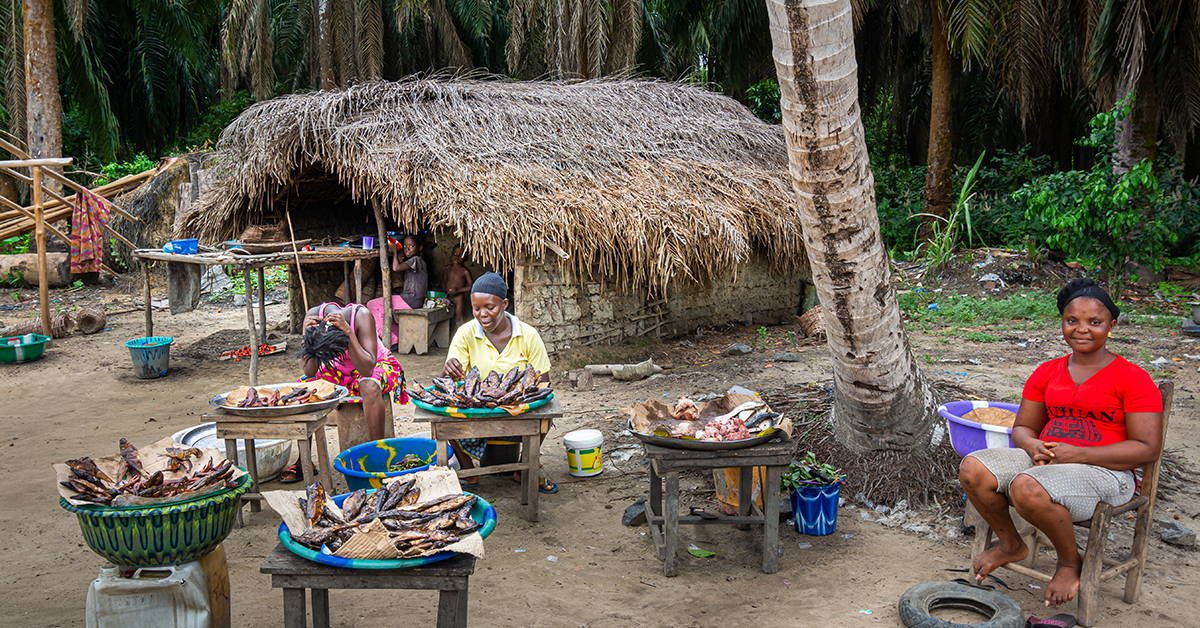
Africa’s oldest republic has ranked amongst the poorest countries in the world for many years. Expectations were high when the former football star George Weah became president in 2018. His first years in office were instead marred by high inflation, unemployment and negative economic growth. After contracting by 3% in 2020 due to the pandemic, GDP recovered to 5% in 2021 and 4.8% in 2022. Weah is up for re-election in October this year.
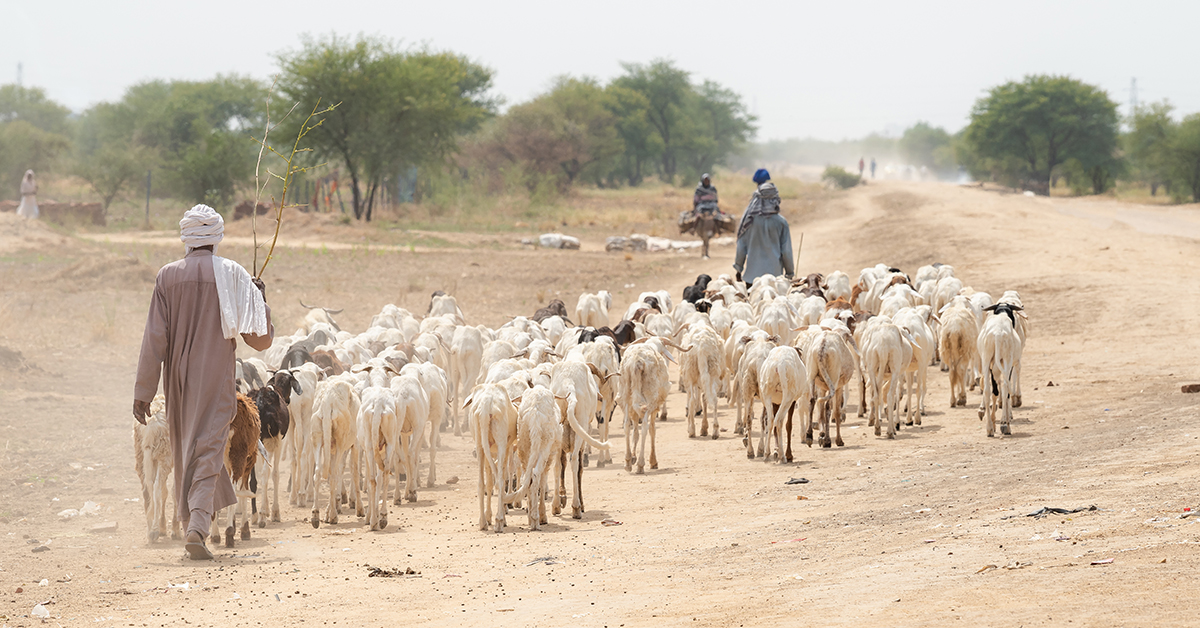
Chad has Africa’s tenth-largest oil reserves yet poverty remains widespread, making it the ninth poorest country in the world. Most of the windfall from the nation’s 2003 oil find was spent by the country’s autocratic ruler, Idriss Deby, on fighting rebels and cracking down on any form of dissent. When Deby was killed in 2021, a military council headed by his son, Mahamat Idriss, took control of the country. The constitution was suspended shortly thereafter, both government and parliament dissolved. Idriss remains “interim” head of state to this day.

One of Africa’s smallest nations, Malawi’s economy—largely dependent upon rain-fed crops—remains vulnerable to weather-related shocks. Food insecurity in rural parts is extremely high.
Malawi has enjoyed stable governments since it gained independence from Britain in 1964. But in 2020, the country's constitutional court annulled former president Peter Mutharika's win for re-election. Theologian and politician Lazarus Chakwera was sworn in his place, and today structural changes have been slow to materialize. Annual GDP growth dipped in 2022 to 0.8%. Year-on-year inflation, in the meantime, rose to a startling 24
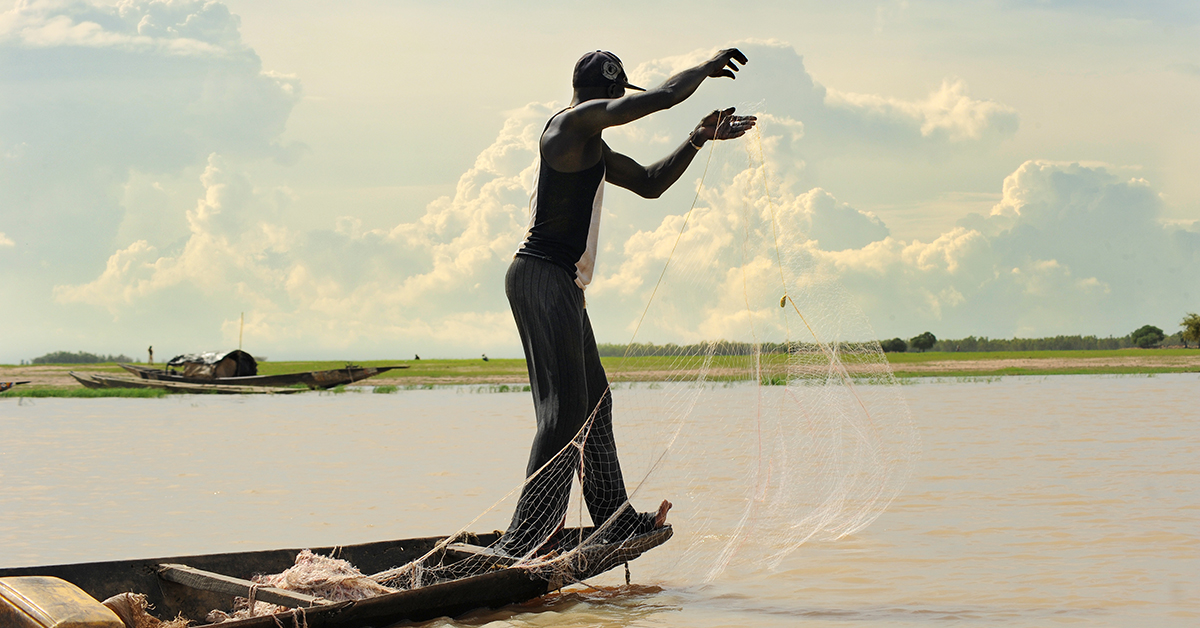
With 80% of its landlocked territory covered by the Sahara Desert and a rapidly growing population dependent upon small-scale agriculture, Niger is under threat from desertification. Food insecurity is high, as are disease and mortality rates. Recurrent clashes of the army with the Islamic State (ISIS) affiliate Boko Haram have displaced thousands. In 2021, Niger inaugurated a new president—ex-teacher and former interior minister Mohamed Bazoum—in its first democratic transfer of power. Now considered a bright spot on the continent, the country saw its economy expand by 11% last year, making it seventh of the world’s poorest countries. It is projected to grow a more subdued but still strong 6.1% this year, and by 13% in 2024.
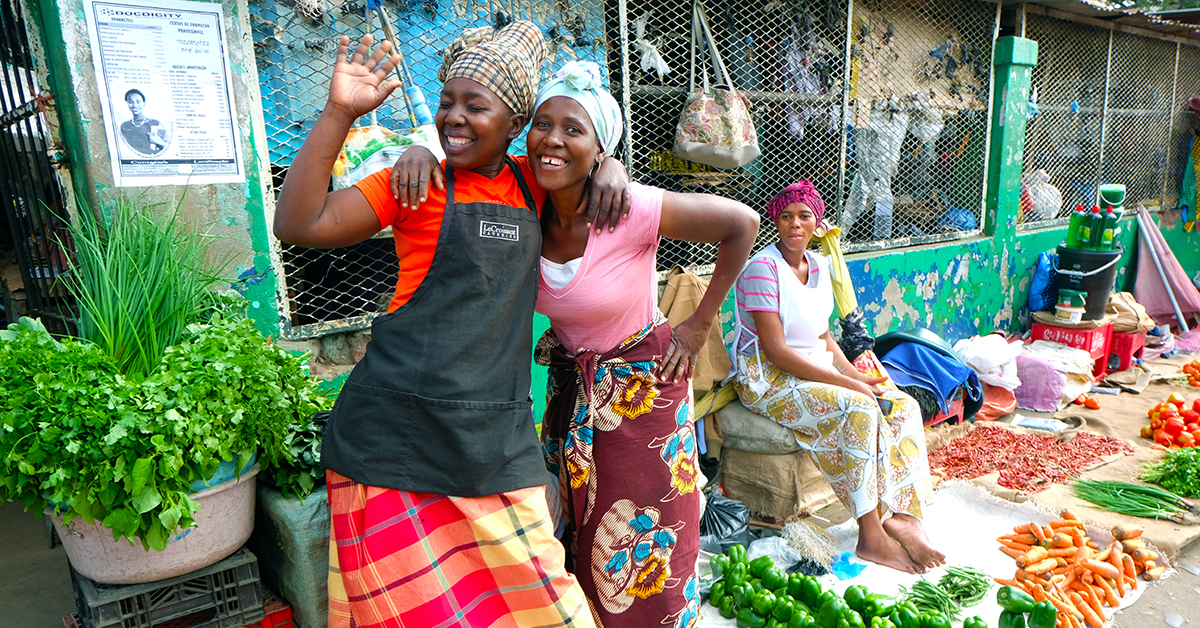
Rich in resources and strategically located, this former Portuguese colony has often posted average GDP growth rates of more than 7% in the past decade. Yet it remains mired among the ten poorest countries in the world. Attacks by Islamic insurgent groups since 2017 have plagued the gas-rich northern part of the country. Still, according to the IMF and its sister institution, the World Bank, the medium-term economic outlook for Mozambique is positive, with growth expected to accelerate to 5% this year and 8% the next.
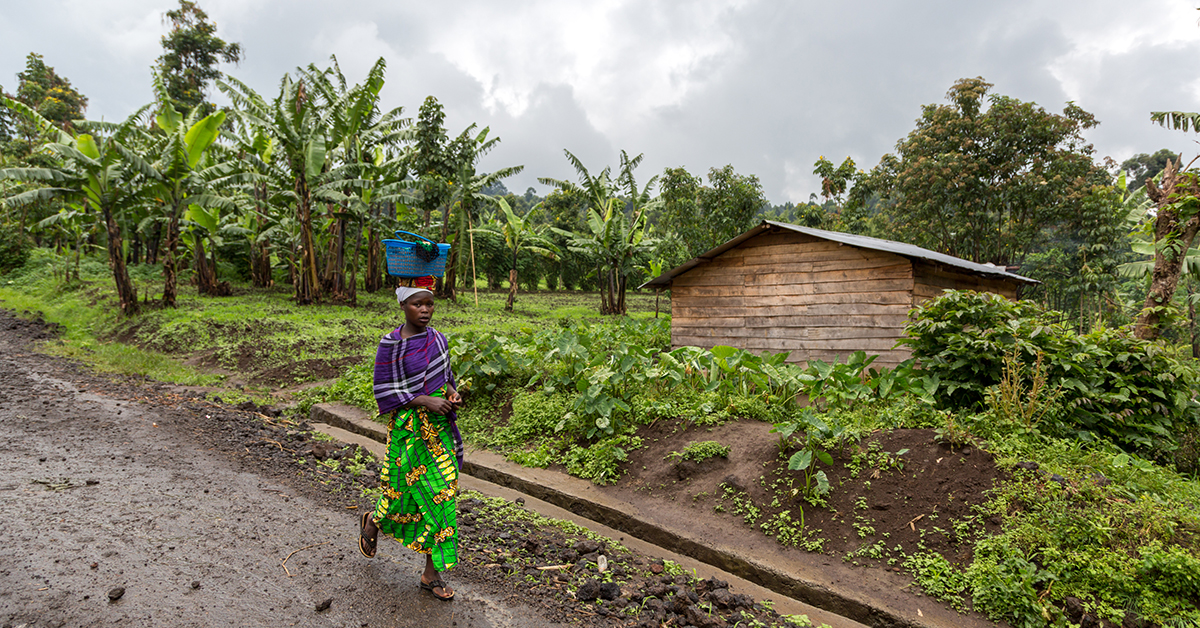
Since gaining independence from Belgium in 1960, the DRC has suffered decades of rapacious dictatorship, political instability and constant violence, making it a regular in our rankings of the world’s poorest countries. Roughly three-quarters of the country’s 97 million population scrapes by on less than two dollars a day. Yet the World Bank says the DRC has the resources and potential to become one of the richest countries in Africa and a growth-driver for the entire continent. The country is already the world’s largest producer of cobalt and Africa’s leading source of copper—essentials in the production of electric vehicles.
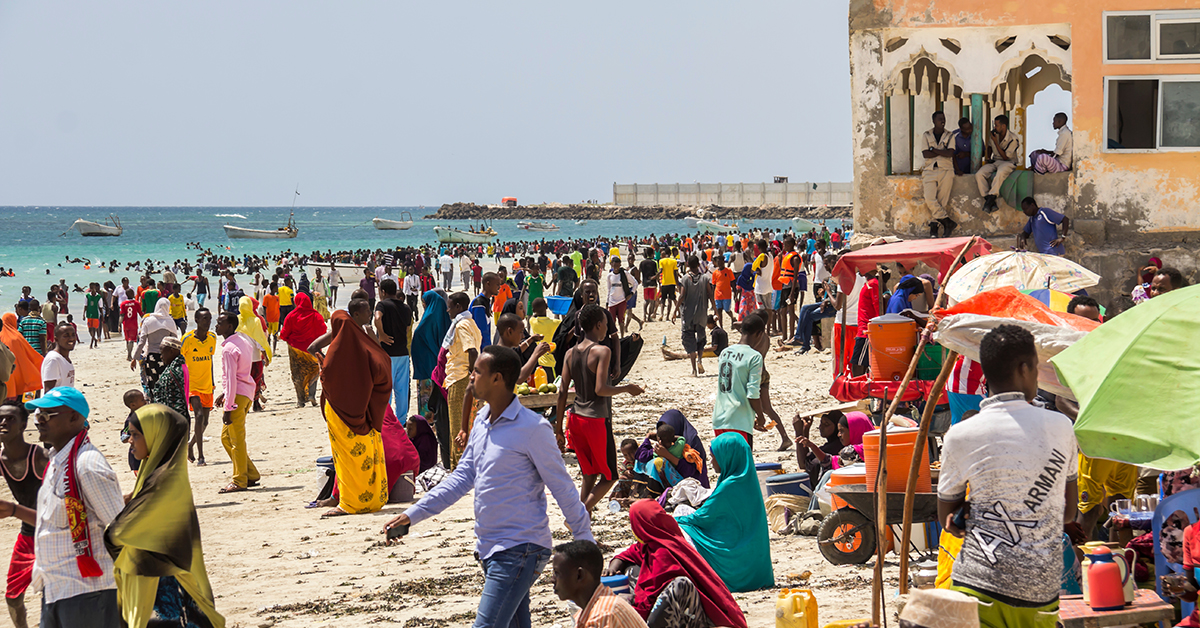
This country of 17 million in the Horn of Africa never seems to catch a break: 2020 brought coronavirus, floods and an unprecedented infestation of locusts; then Russia’s blockade of Ukraine's wheat exports helped fill Somali health facilities with severely malnourished children. Today, Islamist insurgents are trying to overthrow the central government concurrent with the worst drought in four decades. With humanitarian agencies warning that about half of the population is in desperate need of assistance, Somalia is again near the top—or bottom—of our world’s poorest countries ranking.
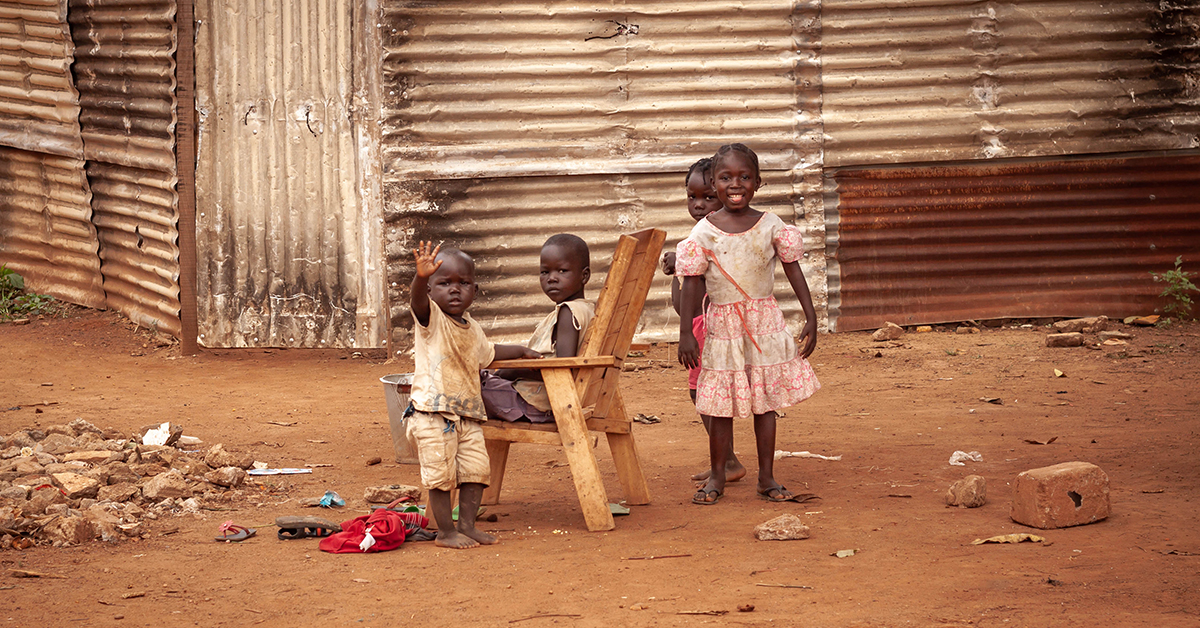
Current International Dollars: 1,127 | View CAR's GDP & Economic Data
Rich in gold, oil, uranium and diamonds, the Central African Republic is a very wealthy country inhabited by very poor people, and has been among the poorest countries in the world for the better part of a decade. The sharp increase in essential good prices that followed the war in Ukraine—simultaneously with cycles of severe flooding and dry spells—has only brought more pain: the United Nations Office for the Coordination of Humanitarian Affairs (OCHA) estimates that approximately 2.7 million people (almost half of CAR’s population) are experiencing acute food insecurity.
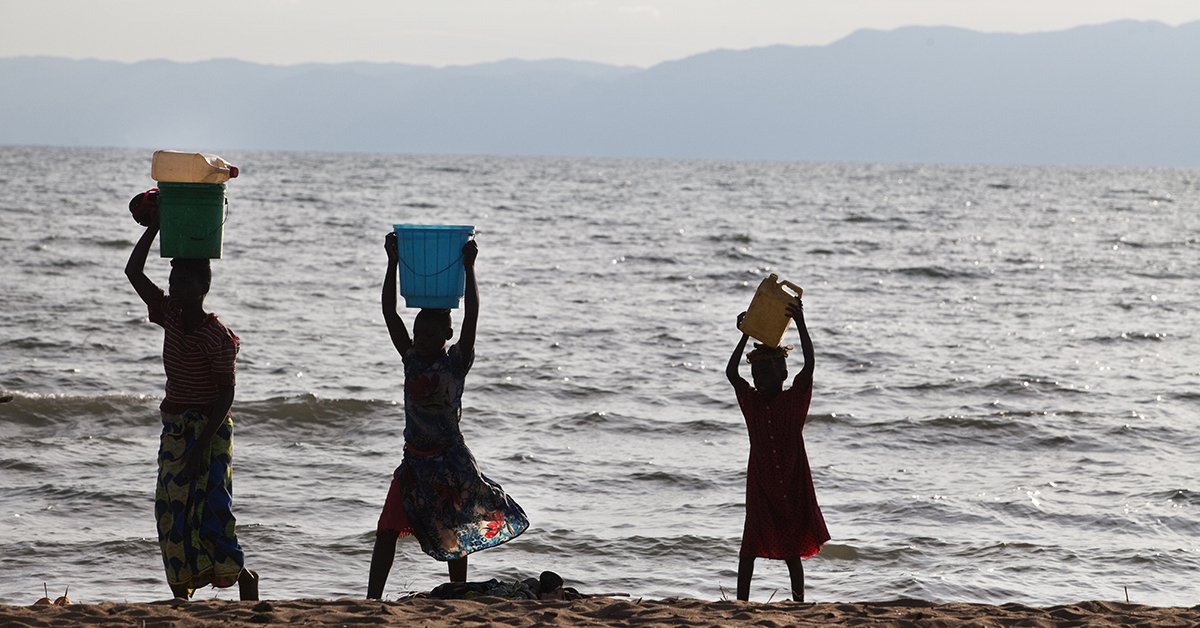
Tiny landlocked Burundi lacks natural resources and has been scarred by a 12-year civil war, contributing to its ranking of second-poorest country in the world. With about 80% of Burundi’s roughly 13 million citizens relying on subsistence agriculture, food insecurity is almost twice as high as the average for sub-Saharan African countries. Furthermore, access to water and sanitation remains very low and less than 5% of the population has electricity. President Evariste Ndayishimiye has made an effort to relaunch the economy and repair diplomatic relationships, and last year, both the US and the European Union resumed aid after lifting financial sanctions. Unfortunately, growth remains sluggish, and inflation is projected this year to be around 16%.
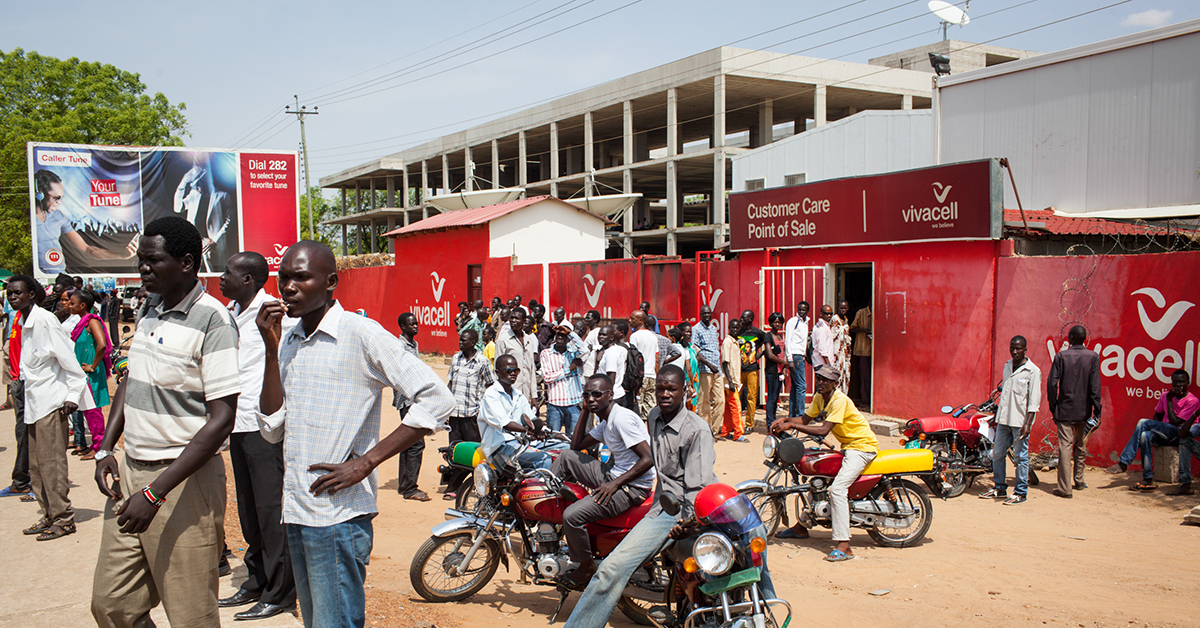
The very poorest of the world’s poorest countries, South Sudan has been wracked by violence since its creation in 2011. Rich in oil reserves, the landlocked state of roughly 11 million represents a textbook example of the “resource curse,” whereby abundance fosters political and social divisions, inequality, corruption and warfare. The majority of the population is employed in traditional agriculture, although violence and extreme climate events often prevent farmers from planting or harvesting crops.
While the projected economic growth for 2023 could hold strong at 5.8%, but inflation is stronger—among the world’s highest at 27%. UNICEF estimates that well over half of the population—some 7.8 million people—are likely to face acute food insecurity during the April-July 2023 lean season.
The list below of the poorest countries in the world measures 97 countries by GDP and PPP and ranks them from poorest to richest. These values are expressed in current international dollars, reflecting the corresponding exchange rates and PPP adjustments.
|
World’s Poorest Countries in 2023 Ranked |
|---|
Rank |
Country/Territory |
GDP-PPP ($) |
| 1 | South Sudan | 516 |
| 2 | Burundi | 891 |
| 3 | Central African Republic | 1,127 |
| 4 | Somalia | 1,374 |
| 5 | Democratic Republic of the Congo | 1,474 |
| 6 | Mozambique | 1,556 |
| 7 | Niger | 1,600 |
| 8 | Malawi | 1,682 |
| 9 | Chad | 1,787 |
| 10 | Liberia | 1,788 |
| 11 | Madagascar | 1,916 |
| 12 | Yemen | 2,042 |
| 13 | Sierra Leone | 2,082 |
| 14 | Eritrea | 2,188 |
| 15 | Kiribati | 2,381 |
| 16 | Solomon Islands | 2,414 |
| 17 | Zimbabwe | 2,627 |
| 18 | Mali | 2,656 |
| 19 | Burkina Faso | 2,726 |
| 20 | Togo | 2,754 |
| 21 | The Gambia | 2,804 |
| 22 | Vanuatu | 3,001 |
| 23 | Guinea-Bissau | 3,072 |
| 24 | Rwanda | 3,090 |
| 25 | Guinea | 3,218 |
| 26 | Uganda | 3,224 |
| 27 | Haiti | 3,248 |
| 28 | Lesotho | 3,251 |
| 29 | Comoros | 3,463 |
| 30 | Tanzania | 3,600 |
| 31 | Timor-Leste | 3,637 |
| 32 | Ethiopia | 3,724 |
| 33 | Micronesia | 3,931 |
| 34 | Zambia | 4,041 |
| 35 | Benin | 4,300 |
| 36 | Sudan | 4,471 |
| 37 | Senegal | 4,515 |
| 38 | Papua New Guinea | 4,516 |
| 39 | Cameroon | 4,665 |
| 40 | Marshall Islands | 4,669 |
| 41 | São Tomé and Príncipe | 4,874 |
| 42 | Nepal | 5,101 |
| 43 | Myanmar | 5,132 |
| 44 | Republic of the Congo | 5,155 |
| 45 | Tajikistan | 5,293 |
| 46 | Tuvalu | 5,797 |
| 47 | Cambodia | 6,092 |
| 48 | Nigeria | 6,178 |
| 49 | Kyrgyz Republic | 6,250 |
| 50 | Samoa | 6,324 |
| 51 | Kenya | 6,569 |
| 52 | West Bank and Gaza | 6,688 |
| 53 | Pakistan | 6,836 |
| 54 | Djibouti | 6,894 |
| 55 | Ghana | 6,974 |
| 56 | Côte d'Ivoire | 7,011 |
| 57 | Tonga | 7,125 |
| 58 | Angola | 7,222 |
| 59 | Honduras | 7,228 |
| 60 | Mauritania | 7,437 |
| 61 | Nicaragua | 7,601 |
| 62 | Venezuela | 8,028 |
| 63 | Bangladesh | 8,663 |
| 64 | India | 9,073 |
| 65 | Cabo Verde | 9,661 |
| 66 | Lao P.D.R. | 9,801 |
| 67 | Uzbekistan | 10,308 |
| 68 | Bolivia | 10,327 |
| 69 | Morocco | 10,460 |
| 70 | Guatemala | 10,546 |
| 71 | Belize | 10,939 |
| 72 | Nauru | 11,342 |
| 73 | Philippines | 11,420 |
| 74 | Namibia | 11,440 |
| 75 | Eswatini | 11,492 |
| 76 | El Salvador | 11,647 |
| 77 | Jamaica | 12,887 |
| 78 | Jordan | 12,893 |
| 79 | Iraq | 12,927 |
| 80 | Tunisia | 13,270 |
| 81 | Algeria | 13,507 |
| 82 | Ecuador | 13,513 |
| 83 | Ukraine | 13,901 |
| 84 | Dominica | 14,161 |
| 85 | Bhuta | 14,170 |
| 86 | Sri Lanka | 14,223 |
| 87 | Vietnam | 14,458 |
| 88 | Mongolia | 14,939 |
| 89 | Paraguay | 15,578 |
| 90 | Kosovo | 15,620 |
| 91 | Fiji | 15,727 |
| 92 | Indonesia | 15,855 |
| 93 | South Africa | 16,091 |
| 94 | Peru | 16,132 |
| 95 | Palau | 16,394 |
| 96 | Moldova | 16,840 |
| 97 | Egypt | 16,979 |
| — | Afghanistan, Lebanon, Syria, Ukraine | N.A. |
Source: International Monetary Fund, World Economic Outlook April 2023. Values are expressed in current international dollars, reflecting the corresponding exchange rates and PPP adjustments.
The section below lists the poorest country in the following continents: Africa, Asia, Australia, Europe, North America and South America.
The poorest country in Africa is South Sudan.
The poorest country in Asia is Nepal.
The poorest country in the continent of Australia is Papua New Guinea.
The poorest country in Europe is Ukraine.
The poorest country in North America is Haiti.
The poorest country in South America is Venezuela.